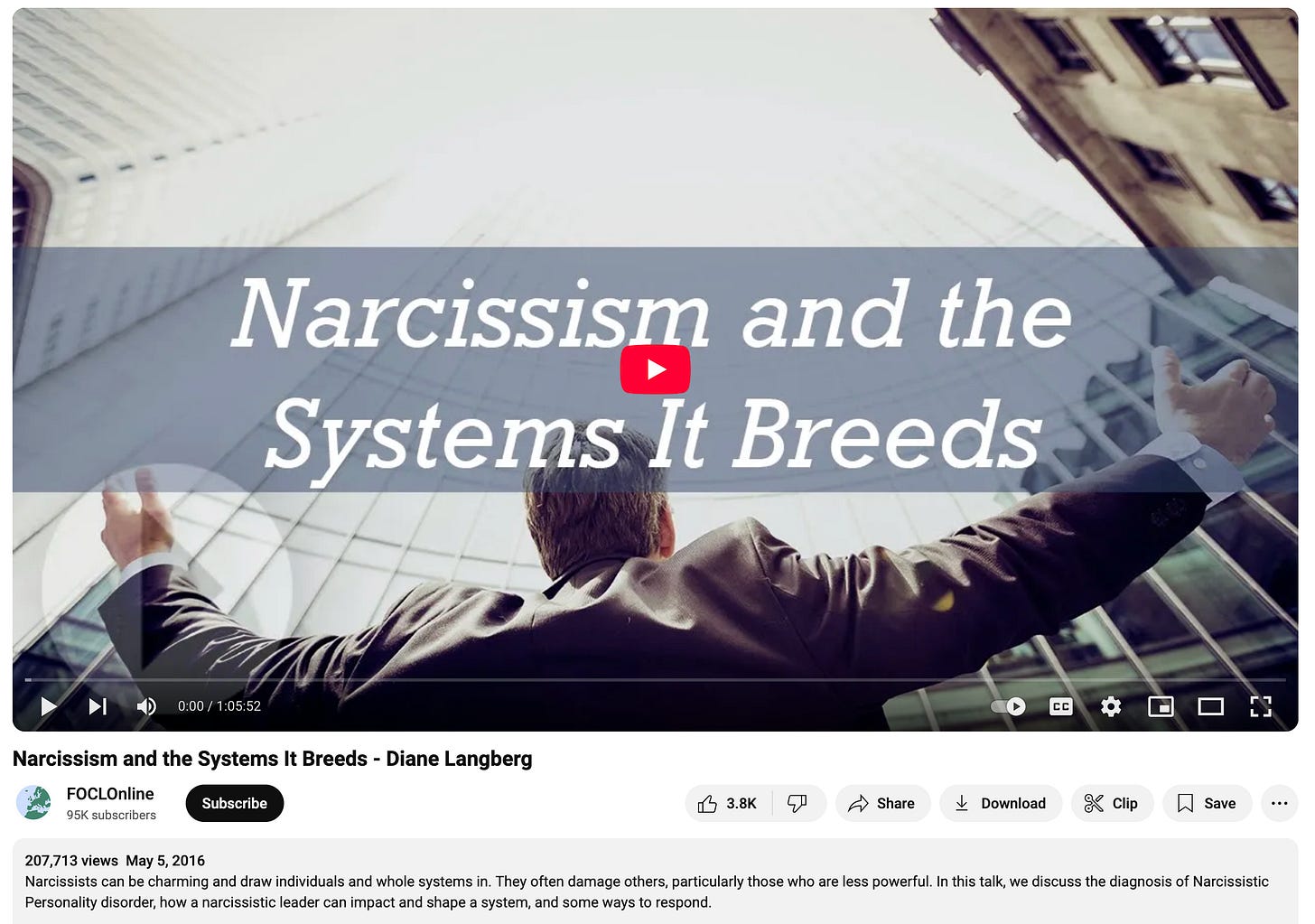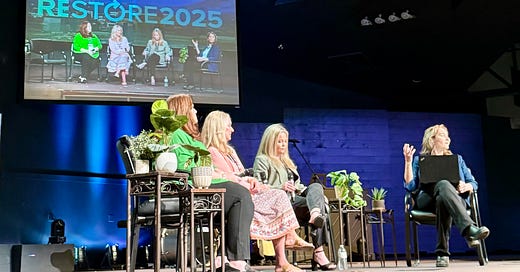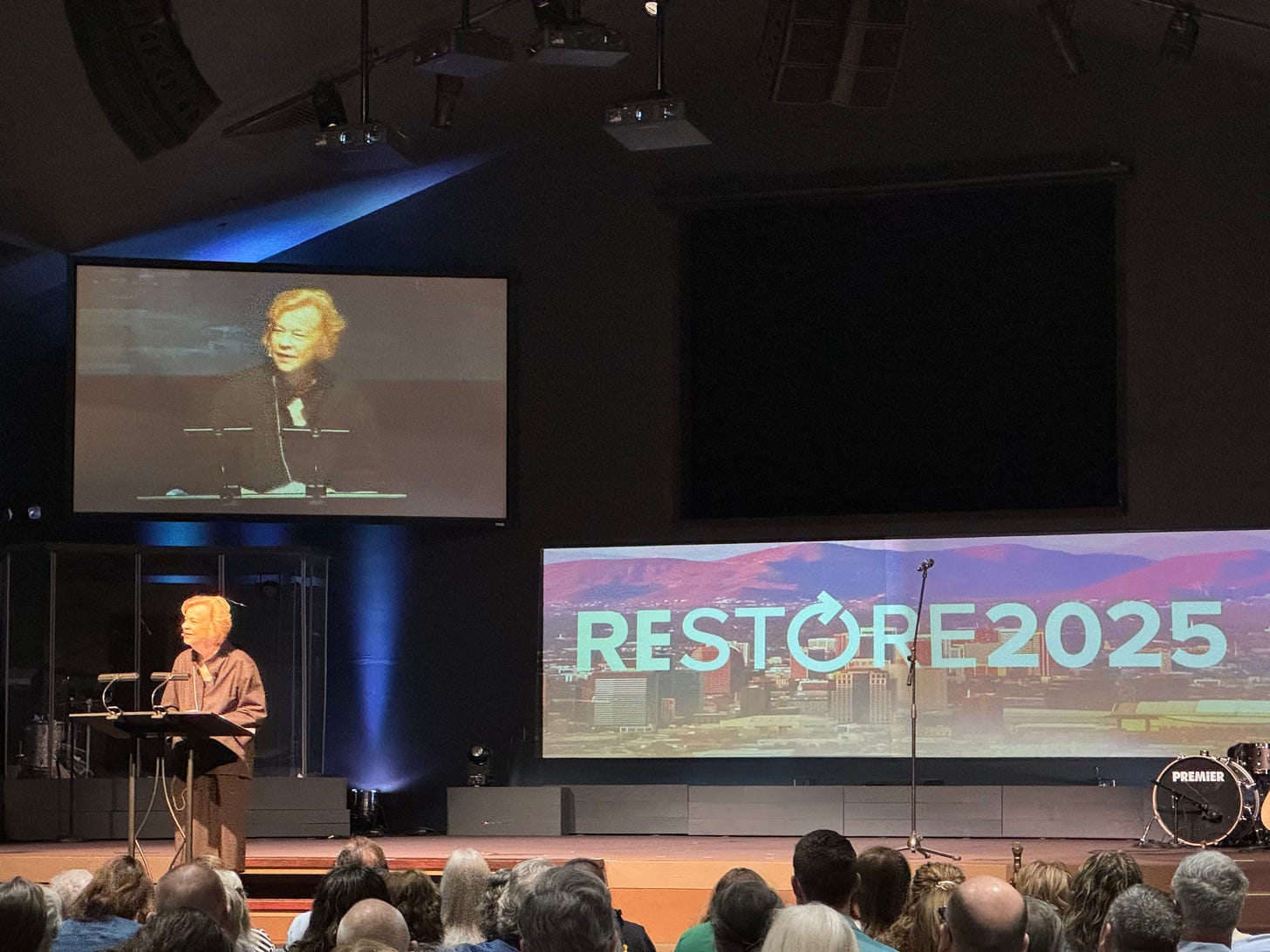When the women took me to Church
Res Ipsa Nota - looking at abuse in the context of real life scenarios
I first read the words “complementarian” and “egalitarian” on Twitter. Frankly, I had never heard of these terms or the doctrines that underpin them. As a child, I did know that only men were pastors and elders at the churches I attended. And that men were expected to have headship of the family. That’s what I knew and that’s where I stayed.
Twitter also taught me a lot about Presbyterians, Episcopalians, and Church of Christ. It taught me that Southern Baptists were not Independent Fundamental Baptists, although many Southern Baptists can be quite independent and even more fundamentalist. Southern Baptists are also are not Free Will Baptists, although presumably the Arminian believing Southern Baptists like free will more than the Calvinist believing Southern Baptists.
Calvinism and Arminianism are two other terms I’d never heard of before Twitter.
Twitter also introduced me to the hard line Calvinists and I learned that many of them need to read their Bible more.
I also hadn’t heard of cessationism or continuationism — the doctrines of whether or not you believe that certain gifts of the Holy Spirit, such as prophecy, tongues, and miraculous healing, have ceased or continue in this church age.
You might be tempted to think that I allowed Twitter to be my theological education, and a shallow one at that.
But it was an education indeed.
It educated me mostly on the actions of self proclaimed Christians in the public sphere, who thought they were right, and what doctrines some thought of as Super Important, as primary doctrines up there with: Is Jesus the Son of God?
My own experience of abuse also opened my eyes to the reality that men’s “headship” not only is often used as a pretext for domineering and abuse, but in many cases, places an intermediary between a woman and Jesus. In some churches and denominations, teachings place more than one intermediary—a woman’s husband, her elders, and her pastor— between a woman and her relationship with Jesus. Only these men can rightly interpret the Bible for her and stand in leadership over her and how her relationship with Jesus functions.
Let it not be!
The Restore Conference kicked off on a Friday morning, the first speaker — who I call the godmother of addressing abuse in the church — Dr. Diane Langberg. She holds a special place in my heart as the one who opened my eyes to how an entire system, a church or a company or other organization, can be infected by the narcissism of its leader. It spreads like a cancer, because many sit at the feet of the narcissistic leader and learn exactly how to control and punish and reward in ways that are promoted and rewarded in that system. Small compromises are made because they’re difficult to identify at the time and The Greater Good often prevails.

The night before the conference started, my dinner companions and I happened upon Dr. Langberg and her husband after they finished dinner and we watched through the restaurant window as they waited outside with a young woman who appeared to be their conference escort. They appeared to be waiting for their cab or uber. After about twenty minutes, one finally pulled up and the young woman got inside.
We had assumed she was waiting for their cab to arrive. No, they were waiting for hers.
After the young woman climbed inside the car, Dr. Langberg, in her late seventies, with her husband holding her arm, began shuffling their way across the parking lot back to the hotel.
The next morning, I sat at a table in the back of the room, my back to the wall, boundaries and safety and all that, waiting for Dr. Langberg to begin.
She opened the conference and spoke er preached er spoke. What do we call it when someone shares about the character of God, urges us to understand who God called us to be, and reminds us to read our Bibles for ourselves?
“It is crucial that our foundation be the study of the character of God himself. That’s the only measure we have that’s true. Without it, we cannot grasp the multitudinous ways in which we are deceptive. It is crucial also because such knowledge of the truth and obedience is the only antidote to catching the disease that hides in our hearts.” - Diane Langberg
Dr. Langberg reminded us that God loves us individually and that we are important to Him, more important than institutions.
“Jesus Christ did not die for our systems,” she said. “He died for broken human beings.”
The next morning, I snuck into the sanctuary from the left side as they changed speakers, four women climbing the stairs of the stage. Settling into the front row on the side, I set my notes on the floor and tried to relax as best as you can when you’re the next speaker in the lineup.
I had followed some of these women’s stories as victims of Mike Bickle, founder and long-time pastor of the International House of Prayer-Kansas City (IHOPKC), a charismatic and evangelical church that believes in continuationism of the prophetic gifts. Two of Mike’s victims, along with a female former leader of the church who advocated for them— for an investigation, and for accountability for Mike after they came forward, sat down, along with Julie Roys of the Roys Report, the conference sponsor.
Keep reading with a 7-day free trial
Subscribe to Res Ipsa with Melissa J. Hogan to keep reading this post and get 7 days of free access to the full post archives.





